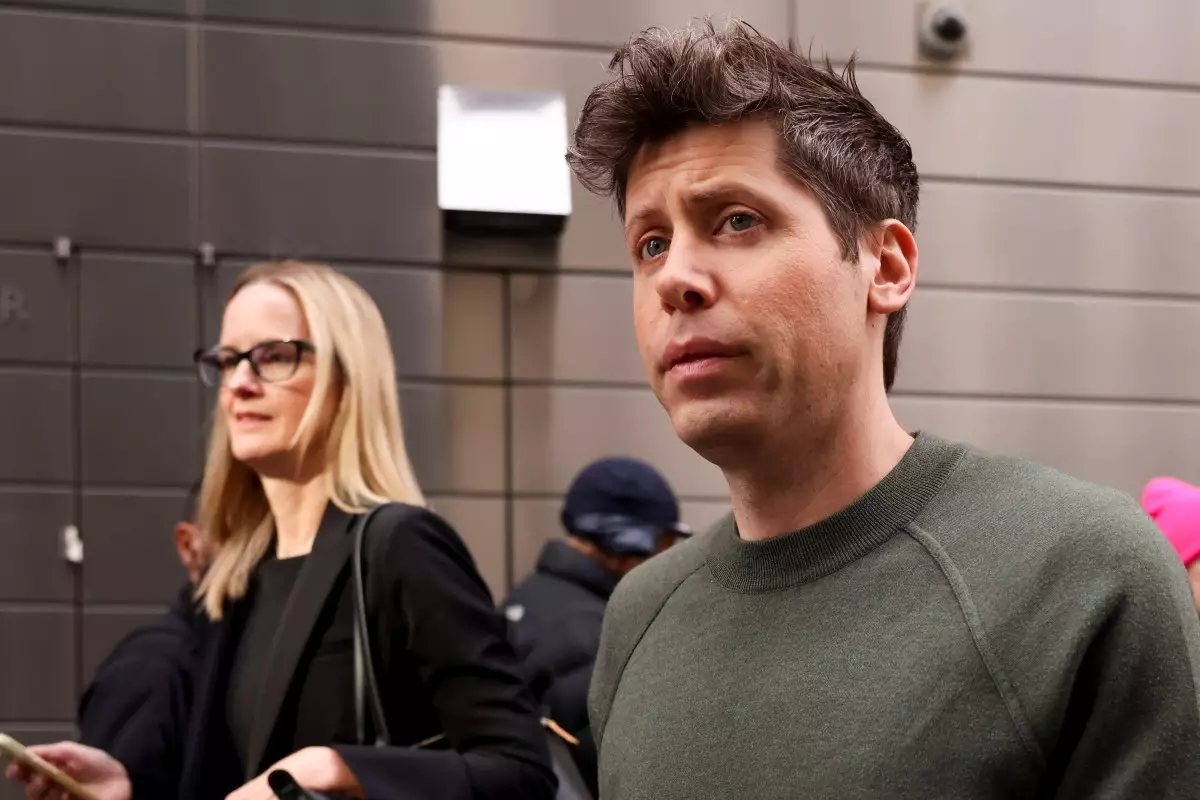As the landscape of artificial intelligence evolves at an unprecedented pace, so too does the corporate framework that supports its development. OpenAI, a name synonymous with cutting-edge advancements in AI, stands at a crossroads: transitioning from a nonprofit research lab to a for-profit entity. This significant shift raises crucial questions about the implications of profit motives in the realm of technology that significantly affects society. Recently, the nonprofit organization Encode expressed concerns about this transition by seeking permission to file an amicus brief in a legal case initiated by Elon Musk. This article delves into the underlying issues posed by OpenAI’s restructuring and its potential ramifications for the AI industry and society at large.
OpenAI was established in 2015 as a nonprofit organization dedicated to ensuring that the benefits of artificial intelligence are widely accessible. However, as its research demands grew and financial sustainability became a priority, OpenAI shifted to a hybrid model that included a for-profit arm, designed to attract investments while still fostering some degree of commitment to open-access AI technologies. This new structure—where a nonprofit oversees a “capped profit” model—has sparked significant debate.
Encode’s legal brief argues that OpenAI’s transition to a Delaware Public Benefit Corporation (PBC) would fundamentally alter its mission. The organization claims that this change transforms OpenAI from being legally bound to prioritize safety and the public good into one where the interests of shareholders take precedence. Such a pivot could endanger the broader mission of public benefit that originally fueled OpenAI’s inception—a concern that has not gone unnoticed in an industry where the stakes involve not only advanced technology but also ethical considerations around its use.
Elon Musk, one of OpenAI’s early backers, has long been a vocal critic of the organization’s impending shift. By filing for an injunction, Musk suggests that OpenAI is abandoning its foundational mission to promote the safe and equitable distribution of AI technologies. His perspective is rooted in a belief that such a transition endangers the fabric of what OpenAI was designed to uphold.
This legal maneuver reflects broader anxieties about the control of transformative technologies by for-profit entities. The questions Musk raises are not merely about OpenAI; they echo concerns regarding any complex, impactful technology being governed by a corporation’s bottom line rather than its broader societal impacts. Musk isn’t alone in this belief; Meta, Facebook’s parent company and a rival in the AI domain, has also voiced its dissent, emphasizing the potential consequences the transition could have on Silicon Valley’s competitive landscape.
One of the most pressing concerns in this debate is the potential diminishment of safety protocols if OpenAI prioritizes profits. A legal brief submitted by Encode highlights that the inexorable pull of profit could diminish OpenAI’s incentive to prioritize ethical considerations in its AI developments. The brief warns that as a PBC, OpenAI’s governance structure will no longer guarantee safety measures previously enforced under its nonprofit status.
For instance, OpenAI’s commitment to cease competing with similarly focused safety-oriented projects could wane as the company’s profit motives take center stage. This poses critical questions about the accountability of organizations managing technologies that will undoubtedly shape the future of society. Can a profit-driven entity truly dedicate itself to the public good amidst shareholder pressure? The ethical divides in AI governance thus become stark, with potential repercussions for millions who rely on safe AI systems.
Part of the wider fallout from OpenAI’s transition is the noticeable exodus of talent. Experienced researchers and engineers are reportedly leaving, unsettled by the company’s apparent shift toward consumer products at the potential expense of core safety principles. One former researcher, Miles Brundage, expressed worries that the nonprofit side of OpenAI could become a secondary concern, lending legitimacy to a for-profit sector that might not rigorously address critical issues related to safety.
This drain of talent reflects a deeper sentiment; concerns are rising that ethical discussions regarding AI are increasingly sidelined when corporate interests take over. As a growing body of experts exits the scene, their insights and experiences could diminish AI development’s ability to navigate effectively the sociotechnical landscape.
The ongoing transformation of OpenAI into a for-profit entity has ignited heated discussions about the impact of commercialization on the broader ethical landscape of AI development. As stakeholders grapple with these complex issues, one thing remains clear: the questions raised require immediate and sincere engagement. The intersection of profit and public good invites scrutiny and calls for a reevaluation of how transformative technologies are governed. Only through inclusive dialogue that prioritizes safety and public interests can the AI sector hope to navigate the tumultuous waters ahead while remaining focused on its foundational mission—serving humanity responsibly.

